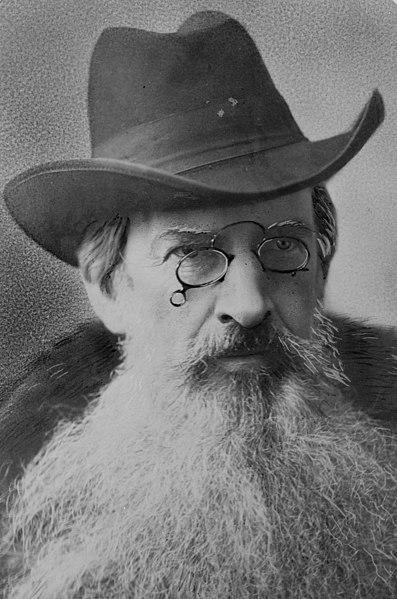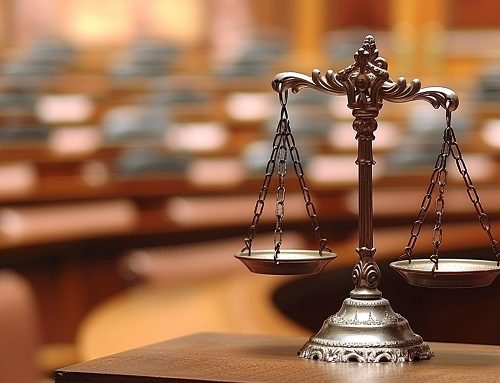Introduction
Ladies and gentlemen, meet Gardiner Greene Hubbard, the man who played a significant role in shaping the modern telephone industry. Born in 1822, in Boston, Massachusetts, Hubbard was the son of a Supreme Court justice and had a notable career in law and finance. He was also an advocate of education, science, and geography, making significant contributions in these fields.
Hubbard’s most notable contribution, however, was in the telecommunications industry. In the late 1860s, he lobbied Congress to pass the U.S. Postal Telegraph Bill, which would have chartered the U.S. Postal Telegraph Company connected to the U.S. Post Office, but the bill did not pass. To benefit from this bill, Hubbard required patents that dominated telegraph technology, such as sending multiple messages simultaneously on a single wire, which led to his investment in Alexander Graham Bell’s invention of the telephone. Hubbard was the founding president of the Bell Telephone Company, which opened the first telephone exchange and laid the first long-distance line.
Under Hubbard’s leadership, the Bell Telephone Company grew and evolved, becoming the National Bell Telephone Company, then the American Bell Telephone Company, and eventually evolving into AT&T. Hubbard’s impact on the telecommunications industry cannot be overstated, and his contributions to education, science, and geography have continued to be celebrated throughout history. Join us as we explore the life and legacy of this remarkable man.
Early Life
Gardiner Greene Hubbard was an American lawyer, financier, and community leader. He was born on August 25, 1822, and was raised and educated in Boston, Massachusetts, to Samuel Hubbard, a Massachusetts Supreme Court justice, and Mary Ann Greene. His younger brother was Charles Eustis Hubbard, who later became the first secretary and clerk of the Bell Telephone Company.
Hubbard was a grandson of Boston merchant Gardiner Greene. He was also a descendant of Lion Gardiner, an early English settler and soldier in the New World who founded the first English settlement in what later became the State of New York, and whose legacy includes Gardiners Island which remains in the family.
He attended Phillips Academy, Andover, and graduated from Dartmouth in 1841. He then studied law at Harvard, and was admitted to the bar in 1843.
Career
Hubbard first settled in Cambridge and joined the Boston law firm of Benjamin Robbins Curtis. There he became active in local institutions. Hubbard helped establish a city water works in Cambridge, was a founder of the Cambridge Gas Co. and later organized a Cambridge to Boston trolley system. Hubbard also played a pivotal role in the founding of Clarke School for the Deaf in Northampton, Massachusetts. It was the first oral school for the deaf in the United States, and Hubbard remained a trustee for the rest of his life.
He entered the national stage by becoming a proponent for the nationalization of the telegraph system under the U.S. Postal Service stating in an article: “The Proposed Changes in the Telegraphic System”, “It is not contended that the postal system is free from defects, but that it removes many of the grave evils of the present system, without the introduction of new ones; and that the balance of benefits greatly preponderates in favor of the cheap rates, increased facilities, limited and divided powers of the postal system.” During the late 1860s, Hubbard lobbied Congress to pass the U.S. Postal Telegraph Bill known as the Hubbard Bill. The bill would have chartered the U.S. Postal Telegraph Company which would be connected to the U.S. Post Office, but the bill did not pass.
To benefit from the Hubbard Bill, Hubbard needed patents that dominated essential aspects of telegraph technology such as sending multiple messages simultaneously on a single telegraph wire. This was called the “harmonic telegraph” or acoustic telegraphy. To acquire such patents, Hubbard and his partner Thomas Sanders (whose son was deaf) financed Alexander Graham Bell’s experiments and development of an acoustic telegraph, which led to his invention of the telephone.
Following Curtis’s retirement, Hubbard relocated to Washington, D.C., where he continued to practice law for 5 more years. In 1876, he was appointed by President Grant to determine the proper rates for railway mail, and he served as a commissioner to the Centennial Exposition.
Hubbard was a founder of the journal Science, a director of the Edison Speaking Phonograph Company, and a principal investor in the Edison Electric Light Company. He was a regent of the Smithsonian Institution and served on the boards of several universities, including Georgetown University, Columbian University, and Howard University.
Hubbard was also interested in the public side of science. After his move to Washington, he was one of the founders and the first president of the National Geographic Society, serving in that capacity from 1888-1897. Today, the Hubbard Medal is given for distinction in exploration, discovery, and research. In 1897, he also helped to rescue the A.A.A.S, the American Association for the Advancement of Science, which was founded in 1848, from financial peril and extinction by enabling its purchase of the “Science” magazine, which he also founded
In 1887, Hubbard was elected president of the American Association for the Advancement of Science, serving in that role for the following year. He was also a trustee of the Carnegie Institution and the John F. Slater Fund for the Education of Freedmen. In addition, he served as a member of the board of visitors for the U.S. Military Academy at West Point and the U.S. Naval Academy at Annapolis.
Hubbard also made significant contributions to the field of geography. In 1888, he helped found the National Geographic Society and served as its first president. The Society aimed to increase and diffuse geographic knowledge, and it quickly became a prominent and respected institution. Under Hubbard’s leadership, the Society sponsored numerous expeditions, sent researchers and explorers to all corners of the globe, and published a highly regarded journal.
In recognition of his contributions to science and exploration, Hubbard was awarded numerous honors and awards. In 1897, just months before his death, he was awarded the Cullum Geographical Medal by the American Geographical Society. He was also a member of the Royal Geographical Society, the Geographical Society of Philadelphia, and the American Academy of Arts and Sciences. In 1887, Dartmouth College awarded him an honorary Doctor of Laws degree.
The Bell Telephone Company
Alexander Graham Bell, the inventor of the telephone, received a U.S. patent for his creation on March 7, 1876. He showcased his invention at the Centennial Exhibition in Philadelphia that same year, which caused quite a stir among attendees. This was the first time the public saw proof that the human voice could be carried through a wire, and it was a game changer.
On July 9, 1877, Alexander Graham Bell formed the American Bell Telephone Company, which opened the first telephone exchange in New Haven, Connecticut, and laid the first long-distance telephone line. Gardiner Greene Hubbard was one of the key players in the history of the Bell Telephone Company. Hubbard organized the company with himself as president, Thomas Sanders as treasurer, and Alexander Graham Bell as “Chief Electrician.” Two days after the formation of the company, Hubbard’s daughter Mabel married Bell, making him the father-in-law of the man who would go on to become one of the most important figures in the history of telecommunications.
Under Hubbard’s leadership, the Bell Telephone Company grew and evolved, ultimately becoming the National Bell Telephone Company and then the American Bell Telephone Company. The company would go on to merge with smaller telephone companies during its growth, becoming at times the world’s largest telephone company, and ultimately evolving into AT&T in 1899. Hubbard has been widely credited as the entrepreneur who brought the telephone to the world, with his leadership and financial backing playing a crucial role in the early success of the Bell Telephone Company.
Conclusion
Hubbard died on December 11, 1897, at his home in Washington, D.C. His wife Gertrude survived him by twelve years, passing away in 1909. Today, Hubbard is remembered as a pioneer in the field of telecommunications and as a leading figure in the development of the modern telephone industry. He is also recognized for his work in education, science, and geography, and his contributions to these fields continue to be celebrated to this day.
References:
- https://commons.wikimedia.org/wiki/File:Gardiner_Greene_Hubbard,_LCCN2010645713_(cropped).jpg
- https://www.geni.com/people/Gardiner-Hubbard/6000000016370965415
- https://en.wikipedia.org/wiki/Gardiner_Greene_Hubbard
- https://www.raabcollection.com/alexander-graham-bell-autograph/bell-quickly-corner-telephone-market










